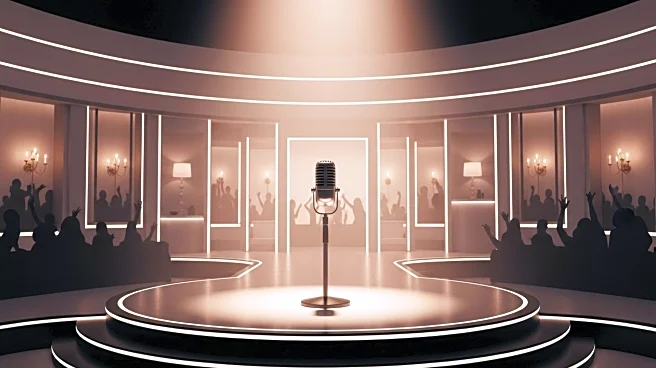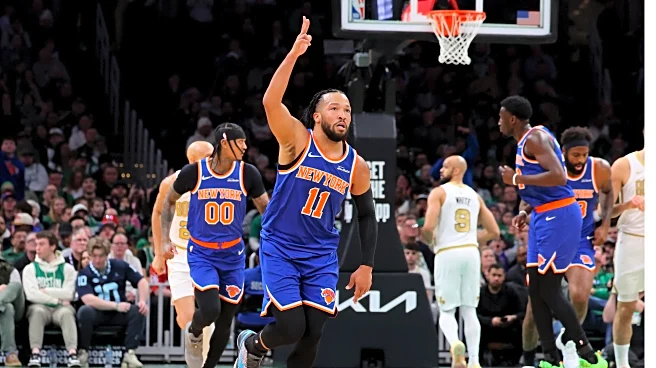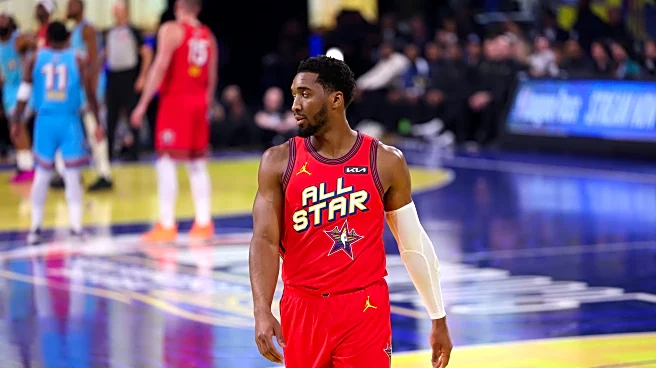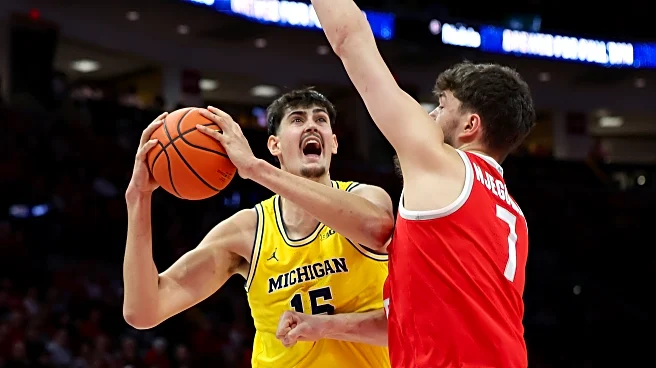What's Happening?
Jimmy Kimmel made a triumphant return to late-night television with 'Jimmy Kimmel Live!' after a week-long suspension, achieving a 10-year ratings high. The episode attracted 6.26 million viewers, significantly surpassing the show's average viewership. Kimmel addressed his suspension, which followed remarks about the accused killer of conservative activist Charlie Kirk, and expressed gratitude to his supporters. Despite pressure from the Trump administration and some ABC affiliates opting not to air the show, Kimmel's monologue gained substantial traction on social media, with millions of views across platforms like YouTube and Instagram.
Why It's Important?
Kimmel's return and the subsequent ratings surge highlight the ongoing tensions between media personalities and political figures, particularly in the context of free speech and corporate influence. The incident underscores the challenges faced by media companies in balancing political pressures with audience expectations. Kimmel's ability to attract a large audience despite the controversy reflects the resilience of late-night television as a platform for political satire and commentary. The situation also illustrates the impact of social media in amplifying television content and engaging viewers beyond traditional broadcast channels.
What's Next?
The controversy surrounding Kimmel's suspension and return may lead to further scrutiny of media companies' responses to political pressure. ABC and its parent company, Disney, may face ongoing discussions about the show's content and its alignment with corporate values. The incident could prompt other networks to reevaluate their approach to political satire and the role of late-night television in shaping public discourse. Additionally, the situation may influence future interactions between media personalities and political figures, potentially affecting the landscape of television programming and audience engagement.
Beyond the Headlines
The incident raises questions about the role of corporate entities in regulating content and the potential implications for freedom of expression. Kimmel's return highlights the power dynamics between media companies and political figures, as well as the influence of public opinion in shaping corporate decisions. The situation also reflects broader societal debates about the boundaries of political satire and the responsibilities of media personalities in addressing sensitive topics.











